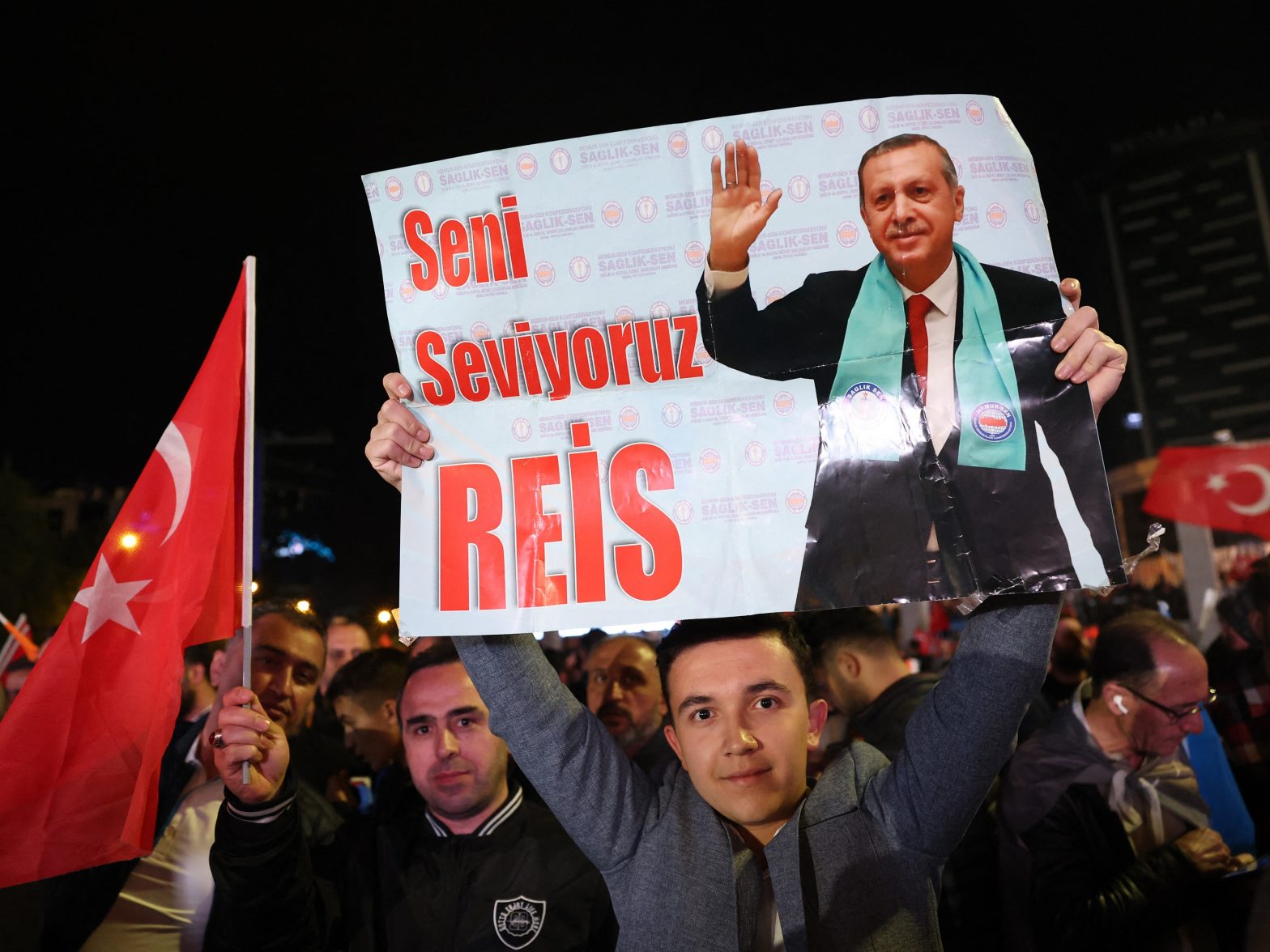Turkish President Recep Tayyip Erdogan has managed to defy predictions of his downfall in the face of mounting challenges and controversy. Despite the devastation caused by a recent earthquake and the country’s struggling economy, Erdogan emerged as the frontrunner in the first round of Turkey’s presidential and parliamentary voting, putting him in a strong position for the run-off election.
During the first round, Erdogan secured a nearly five-point lead over his principal rival, Kemal Kilicdaroglu, falling just short of the 50% threshold required for an outright victory. Additionally, his parliamentary bloc won a comfortable majority in the legislature. The third-place presidential candidate, Sinan Ogan, publicly endorsed Erdogan, further bolstering his chances in the run-off election.
As the election campaigns unfolded, Erdogan and Kilicdaroglu presented stark contrasts to the electorate. Erdogan showcased his political prowess and emphasized Turkey’s growing defense industry, while Kilicdaroglu positioned himself as a technocrat, projecting a soft-spoken and conciliatory image.
The opposition’s attempt to unseat Erdogan saw six right- and left-wing groups unite, aiming to capitalize on public dissatisfaction with the struggling economy and the government’s response to the earthquake. Erdogan, on the other hand, focused on energizing his conservative strongholds.

The deepening polarization in Turkish society was reflected in the final campaign gestures of the two candidates. Erdogan prayed at the Hagia Sophia, a controversial move as he had controversially annulled the decision to turn it into a museum in 2020. Kilicdaroglu paid tribute to Mustafa Kemal Ataturk, the founder of the Turkish Republic known for secularizing the country.
Erdogan’s support base, rooted in religious fervor, has proven resilient despite economic challenges and criticisms of the government’s response to the earthquake. Many of his supporters believe that a Muslim leader is essential for their country. The strength of this support was underestimated by pollsters and Western media, as it was not fully captured in their assessments.
Critics argue that Erdogan solidified his base by leveling unfounded allegations against the opposition, accusing Kilicdaroglu of colluding with Kurdish terror groups. Erdogan’s rhetoric resonated with right-wing voters who were expected to support Kilicdaroglu. While his message did not resonate in major cities and affluent regions that largely voted for the opposition, Erdogan garnered significant support in poorer central regions and along the Black Sea coast.
Erdogan’s dominance over Turkish media also played a role in amplifying his message, according to critics who argued that the playing field was not fair. Despite these advantages, Erdogan’s overall trajectory has been on the decline, as evidenced by the loss of major cities in the 2019 mayoral elections and the opposition’s strong showing in Istanbul during the first round of the presidential voting.
The run-off election will provide further insight into the strength of Erdogan’s support and the direction Turkey will take under his continued leadership. If Erdogan secures a resounding victory, it could reinforce his unorthodox economic policies, the erosion of the rule of law, and limited social autonomy. As Turkey faces ongoing challenges, the outcome of the election will shape the future of the country and Erdogan’s legacy as its leader.
©world-news.biz
